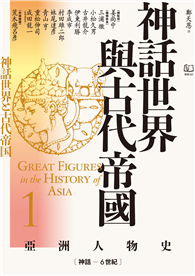Paul Weinzweig was born in 1943 and grew up in Toronto, Canada, where he earned a Ph.D. in Sociology from the University of Toronto (1970) and went on to do volunteer research work in West Africa at a community mental health project. He has taught in the social sciences at several Canadian universities and helped to pioneer and present televised distance education. Paul served as Associate Director of the Ontario Confederation of University Faculty Associations where he managed negotiations between university teachers and the new provincial distance education authority (TV Ontario) that laid the ground rules for the participation of university teachers in the new electronic educational media. Paul has conducted research in many areas including private school education, the role of international nongovernmental organizations in peace and disarmament, the plight of Canada’s indigenous peoples migrating from rural to urban areas, and cultural programming for Toronto’s Harborfront development. In 1987, during the advent of Perestroika, Paul was invited to the Soviet Union, where his book on creativity and self-realization was published in Russian. The book became a best-seller and he was encouraged to make a television series for Soviet Central Television based on the book’s themes. The 14-part TV series ("To the Promised Land..."), blending Russian performing arts with talks on social and psychological change, became part of a fund-raising effort by Paul and his wife Paulina to support the renowned but struggling Natalya Sats Musical Theater. Paul and Paulina live in the Caledon Hills north of Toronto. They are semi-retired, dedicating their time to writing and publishing.
| FindBook |
有 1 項符合
Technology and Humanism的圖書 |
 |
Technology and Humanism 作者:Weinzweig 出版社:Createspace Independent Publishing Platform 出版日期:2015-10-26 語言:英文 規格:平裝 / 58頁 / 20.32 x 12.7 x 0.3 cm / 普通級/ 初版 |
| 圖書館借閱 |
| 國家圖書館 | 全國圖書書目資訊網 | 國立公共資訊圖書館 | 電子書服務平台 | MetaCat 跨館整合查詢 |
| 臺北市立圖書館 | 新北市立圖書館 | 基隆市公共圖書館 | 桃園市立圖書館 | 新竹縣公共圖書館 |
| 苗栗縣立圖書館 | 臺中市立圖書館 | 彰化縣公共圖書館 | 南投縣文化局 | 雲林縣公共圖書館 |
| 嘉義縣圖書館 | 臺南市立圖書館 | 高雄市立圖書館 | 屏東縣公共圖書館 | 宜蘭縣公共圖書館 |
| 花蓮縣文化局 | 臺東縣文化處 |
|
|
圖書介紹 - 資料來源:博客來 評分:
圖書名稱:Technology and Humanism
|










